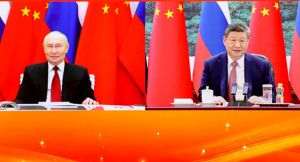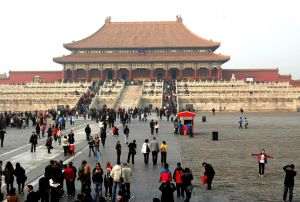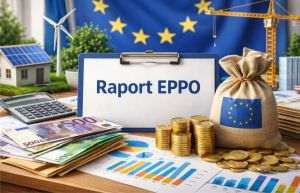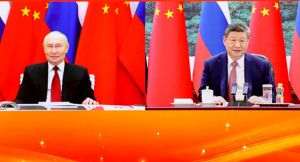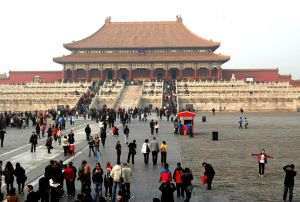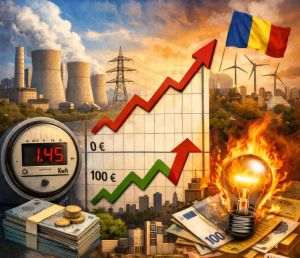Reporter: How are you affected by the state of Romania"s economy and the context of the sovereign debt crisis in Europe?
Ioan Cuzman: The sovereign debt crisis will mean the implementation of certain measures in response to it, which will lead to a drop in consumption.
I would like to believe that this would first of all mean the elimination of wasteful behavior, because this is the main problem.
The absence of measures and actions to stimulate real economic growth has an influence, first of all, on the capital market, which is the most sensitive to shifts in perception.
The SIFs, in general, and SIF Banat Crişana, in particular, have a financial structure which allows them to handle the challenges of the crisis. Moreover, we have invested in the real economy, in sectors for which we believe the prospects are good.
Because of the way the crisis is perceived, we have been careful in our objectives, making forecasts and focusing on the medium and long term financial stability
Reporter: What is the financial strategy of the SIFs, without these stakes in the banks?
Ioan Cuzman: We are ourselves analyzing where the real economy is at right now and which sectors have a good future ahead of them. The problems of the future are going to be food, water and energy. I think that in agriculture we need to return to basic necessities, if we are to talk about the economic logic.
Reporter: Mihail Rottenberg also mentioned those three sectors, to which he added tobacco, healthcare and banks...
Ioan Cuzman: I would add healthcare. In my opinion, in the banking sector, profitability will reach more realistic levels. It"s abnormal having the banks build colossal offices while the real economy crumbles. The financial economy has been living off the real economy. This is the main problem, when talking about a new economic logic.
Reporter: Are you planning making any major investments in the future in companies operating in these sectors in the future?
Ioan Cuzman: Yes. But we have two main principles. One is making money, and the second is having a guaranteed exit. Since we are an financial investment company, we are not specialized investors. We need to have the possibility to adjust our portfolio depending on the fundamental and technical analyses we make of what is happening in such a market.
Reporter: How do you make these investments?
Ioan Cuzman: Using the money we make.
Reporter: What are your current sources of money?
Ioan Cuzman: Selling assets and let"s say, the returns on our assets, when we earn dividends.
We are going towards areas which we consider to be profitable, we conduct fundamental and technical analysis, we have experts, we have developed a department which monitors everything that is happening all over the world, we entered the foreign markets, particularly Europe.
Reporter: You said that you intend to lower your exposure to paper, furniture, plastics ... Do you intend to sell "Vrancart", for instance?
Ioan Cuzman: If the price were right, we wouldn"t have a problem with anything. Concretely, no. We don"t view it as for sale, at the moment, because it is in a final stage of retooling and we want to sell a plant which is beautiful, clean and more efficient.
Reporter: On the foreign markets, where have you invested so far?
Ioan Cuzman: On the European markets.
Reporter: Western Europe or the neighboring markets?
Ioan Cuzman: Western Europe of course.
Reporter: Were these investments made in companies?
Ioan Cuzman: Yes.
Reporter: And how are they doing?
Ioan Cuzman: We are making money. Even if it"s not very much for the moment. Research involves a lot of things, and we are in a testing period, so to speak. We are doing reasonably well.
Reporter: So the proportion is rather low...
Ioan Cuzman: We don"t foolishly jump head first into the empty pool.
Reporter: Empty or leaking...
Ioan Cuzman: Or that. Our principle is that nimbleness is key. We can"t have enough information available for a fundamental analysis. We can"t know, for instance what kind of research Siemens has under way.
Reporter: Do you think it would be a good idea to invest in Roşia Montană?
Ioan Cuzman: No. I don"t agree with the Roşia Montană project, all the Nobel awards nominees are saying that no country should sell its underground resources.
Reporter: They argue it differently: no country exploits this kind of resources itself, through state owned companies.
Ioan Cuzman: Things are more complicated than that. The Romanian state needs to have the guarantee that these resources, which come from nature, will be used in an efficient manner in favor of the population, because we are part of this country. Who benefits from this project? This is the first question. And then, I could say this: Romania has the following development strategy, this is the forecast for the next forty years. Why sell now what today"s youth may want to have twenty years from now. What gives us the right to sell something they are entitled to as well?!
Reporter: But there are certain circumstances which indicate that we are at an adequate moment - the high price of gold...
Ioan Cuzman: People are buying gold, gold, gold, and then what do they do with it? If you want, we could talk about the notion of money, about outlook, about how international trade will take place from now n, I am telling you, we may end up going back to barter. What do I do with gold, when it"s all said and done? Gold has the same flaws as anything else. If we look now, for instance at the markets, in general, we have a market for gold, we have a market for metals, we have a market for grains, we have a market of capital, we have a financial market. People move from one market to the next, depending on the possibilities for growth.
I think that when discussing the underground resources, we should have an overall vision on the matter. We don"t sell them to get out of trouble. What do we do with the money? Pay off debts?
Reporter: Are you considering participating in the offerings of Transgaz and Transelectrica?
Ioan Cuzman: We haven"t decided yet, we are present over there...
Reporter: They are energy companies, aren"t they...
Ioan Cuzman: Indeed they are. But there has to be some predictability and that is the problem with most of the economic measures being taken right now.
Reporter: The listing of BCR is no longer possible, once SIF Muntenia concluded a deal with "Erste Bank"...
Ioan Cuzman: I want to tell you that I wasn"t a supporter of the listing of BCR either, because it wouldn"t have been advantageous to have BCR listed on the Bucharest Stock Exchange, which has very low trading volumes.
We preferred and obtaining shares positioned on the Vienna Stock Exchange, which has a far greater capitalization.
If the five SIFs had brought their 30% of BCR on the Bucharest Stock Exchange, because we needed the money, the price would have fallen disastrously. Besides, who would have joined "Erste" as a shareholder in BCR without any defensive conditions, for a 30% stake. Maybe some investment funds, I"m not saying that we wouldn"t have found something, but we need to think of the odds and of perspective. We have been criticized by many, especially by brokers, for selling BCR too cheap. Let"s make some calculations: one SIF had a 6% stake in a bank than the company that we are entering now, which means we should have received 0.6% of that company, but we got 1% of a bank which is ten times bigger. So did we make a bad deal?
It"s obvious we made a good one.
And then, we discussed exchanging the shares for cash and exchanging shares through a contribution to the share capital. Sure, you"re going to say that "Erste" is in trouble. We all said (ed. note: the chairmen of the SIFs), repeatedly, in your newspaper, that the entire banking system has problems. "Erste" had more courage than others did to clean up its balance sheet and to acknowledge a loss, and then start off on the right path.
Reporter: You are going to hold off a General Shareholder Meeting, do you expect to reach an agreement with Erste as well, like SIF4 did?
Ioan Cuzman: I very much hope so.
Reporter: Assuming that you reach this agreement, before it gets completed, there is still the General Shareholder Meeting of BCR coming up next, concerning the share capital increase in the bank. Erste told us that procedure wise, the exchange will not be performed before the General Shareholder Meeting.
Ioan Cuzman: The problem is signing some documents and then the economic operation will follow.
Reporter: Do you plan on not participating in this share capital increase?
Ioan Cuzman: We can"t say right now.
"The absence of measures and actions to stimulate real economic growth has an influence, first of all, on the capital market, which is the most sensitive to shifts in perception".
"In my opinion, in the banking sector, profitability will reach more realistic levels. It"s abnormal having the banks build colossal offices while the real economy crumbles. The financial economy has been living off the real economy".
The problems of the future are going to be food, water and energy.
"We have two main principles. One is making money, and the second is having a guaranteed exit".
"I want to tell you that I wasn"t a supporter of the listing of BCR either, because it wouldn"t have been advantageous for us to have BCR listed on the Bucharest Stock Exchange, which has very low trading volumes".

